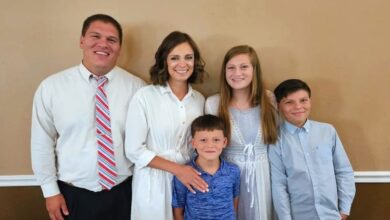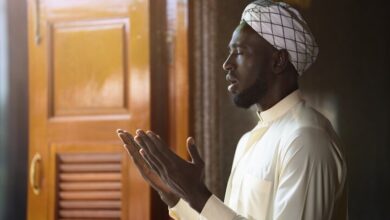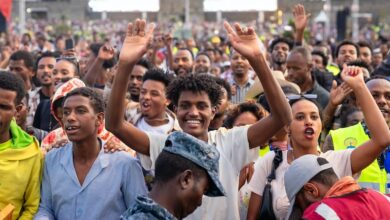Nigerian activists run schools to counter Boko Haram violence
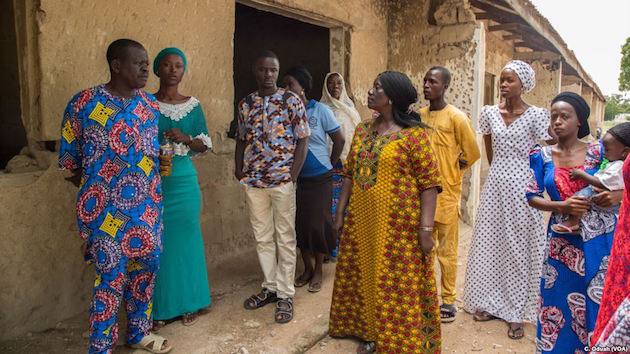
LASSA, NIGERIA — When Rebecca Gadzama meets with the teachers she oversees, they sometimes hold the meeting outdoors, under trees in open fields. It gives them a chance to spot danger and run in case of an attack.
The Islamist militant group Boko Haram is still an ever-present danger in northeastern Nigeria and is still against people being educated in Western-style schools, Christians and anyone who does to obey their strict Islamic code.
Yahaya James, an elementary school math teacher, recalled one attack in his hometown of Lassa, in the southern part of Borno state.
“I was here in the town when they came. I was living with my mom and my dad and we just heard gunshots and we started running,” he told VOA.
Signs of attacks
Lassa lies adjacent to Sambisa Forest where most Boko Haram members are believed to be hiding. The insurgents frequently invade Lassa for supplies, and the town shows visible signs of attacks. Buildings here are crumbling.
That’s why Gadzama returned home from where she was living in central Nigeria. She brought dozens of teachers, Yahaya James and others, together to work in a school that she co-founded with her husband.
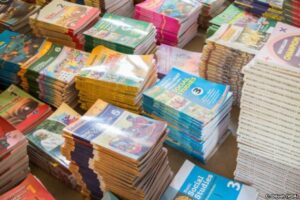
The program is called the Education Must Continue Initiative, or EMCI. It was created in 2014 to respond to the need for quality education in a region where Boko Haram militants have destroyed most of the government schools.
“We are just private individuals, just good citizens, natives of this area, so … because we weren’t sure when the government would start their school, we just found this place,” Gadzama said.
EMCI runs two schools for displaced children, one in Lassa and one in the city of Yola. Gadzama said the schools have 1,600 students being instructed by 80 teachers. The teachers sometimes meet in the open, but classes are held under roofs, either in newly constructed buildings or tents provided by the government.
Government focused on Maiduguri
The schools run mainly on donations. Much of the government’s reconstruction spending in Borno State is directed at Maiduguri, the state capital and the city where Boko Haram started.
In June, a newly built neighborhood of 200 housing units was opened in the Maiduguri area, which is more than 200 kilometers north of Lassa. Largely a private-funded venture, the new community provides brand new housing for Boko Haram victims.
“We hear about what is happening in northern Borno. Buildings are made, they are allocated to people. It doesn’t look like there is government presence in the situation in the rebuilding of this area,” Gadzama said.
James and a group of local schoolteachers walk around an aging school building in Lassa. Among them is 23-year-old Maimuna Zhubairu. Boko Haram killed three of her uncles and her older brother. She feels the government has abandoned Lassa.
“Most of the help comes from NGOs,” she said. “The government, they are not doing much help.”
She thinks the inaction may be because Lassa is a mostly Christian town, while the majority of people in northern Nigeria are Muslim. When Boko Haram launched its violent insurgency in 2009, Christians and their churches were among the group’s early targets.
Muhammed Bulama, the Borno state minister of information, told VOA the government is overwhelmed by the amount of damage Boko Haram caused: $9 billion in northern Nigeria and $6 billion in Borno state alone.
He said that most of the reconstruction efforts are focused on northern Borno because it is where most of the damage is, and also because parts of southern Borno are still inaccessible.
He said the government has begun working in Lassa, helping to rebuild a church.
“Lassa is not even a local government capital, yet it has received some rehabilitation. Reconstruction is not an event, it is a process. We have not neglected any area and most of the people accusing the government of religious bias are mischief makers,” Bulama said.
Dealing with trauma
Gadzama stops by to visit another EMCI school. Most of the students are Christians still traumatized by what they have seen. Some of them want to become soldiers when they get older to get revenge on what Boko Haram did in their communities.
“Boko Haram, I see them use knife, chop my grandfather head,” 13-year-old Ibrahim Daniel told VOA, speaking in pidgin slang English. “I like to be a soldier because anything that them do, I like to do for them. If me I see them, me I go carry them, me I kill them.”
Under the blazing sun in a sandy field, the kids play war games, with one side pretending to be soldiers and the others acting like Boko Haram.
Rebecca hopes the school library she’s working on will help heal the students’ minds.
“It is not an issue of fighting back,” she said. “It’s an issue of how do we get over this? How do we become one again because the guys in the Boko Haram are also children. … When will it stop? So we thought that the best thing to do is to give these children here education, good education, and psychosocial counseling and teach them positiveness in the society.”
In her mind, education is the only way that the region can withstand and defeat Boko Haram.
–VOA News Service




